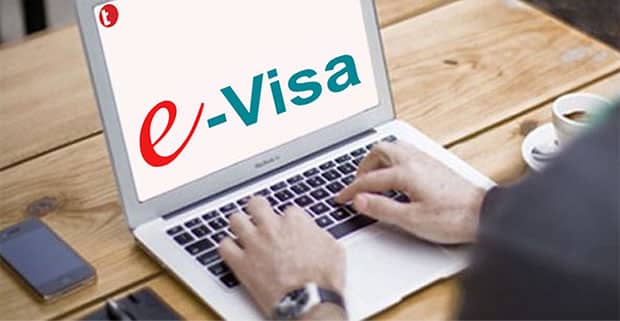Africa’s Visa Requirements
Africa is one of the regions in the world with the highest visa requirements. Visa restrictions imply missed economic opportunities for intra-regional trade and for the local service economy such as tourism, cross-country medical services or education.
During the African Development Bank Annual Meetings in Marrakech, Morocco, on May 31, 2013, a high-level panel – organized jointly by the World Economic Forum and the African Development Bank – discussed the benefits of relaxing visa restrictions throughout Africa. Dr. Ibrahim Bocar Ba, ECOWAS Commissioner of macroeconomic policy, underlined that Africans mainly migrate to Africa. In ECOWAS more than 80% of all migration is intra-regional. Nonetheless, Africans need visas to go to 80% African countries, these restrictions are higher for Africans travelling within Africa than for Europeans and North Americans.
In his opening remarks, Professor Ncube, the Chief Economist and Vice-President of the African Development Bank, underlined that “The movement of talent and people is at the core of regional integration and is a core pillar of the Bank’s Ten-Year Strategy. Twenty-five percent of all trade in Africa is informal; it is the strongest in West Africa. If there were no visa requirements, informal sector trading would boom.”
Razia Khan, who is head of research in Africa for Standard Chartered Bank, introduced herself rather as a citizen of an African country, travelling extensively within Africa – who often measures the time that it takes to get visas against the amount of economic research that could have been developed.
Leonard Rugwabiza, Director, General Planning at the Ministry of Finance and Economic Planning in Rwanda, shared the lessons of Rwanda, which has moved to biometrix border management, low restrictions on transfer of services in engineering and legal services as well as visas on arrival for all African citizens since January 1, 2013. Rwanda, with a limited number of embassies abroad, has also introduced e-visas in order to reduce the costs and time constraints of people in obtaining visas. He confirms that “since we opened our borders, tourism from African countries has increased by 24%.” Furthermore, “trade actually shifted from being oriented to Europe and North America, and is now oriented to neighbouring countries. Trade with neighbouring countries increased by 50% last year, and trade with neighbouring Democratic Republic of Congo rose by 73%”.
Important points regarding passports and visas
Ensure that your passport has at least 12 free pages if undertaking any expeditions of 57 days or less.
Also ensure that your passport possesses at least 12 months validity beyond the date of your return from Africa.
If there is a big dissimilarity between your passport photo and your appearance now, apply for a new passport and avoid possible problems at border frontier points.
RSA (South Africa) passport holders may need to obtain more visas in advance of arrival compared with passport holders of other countries such as the UK or Australia. If an RSA passport holder, check your personal visa requirements carefully. Some countries may deny you entry, if you don’t possess a visa obtained in advance of your proposed entry.
For a short trip through Africa, get all your visas before you leave home. For a longer trip, it’s easier to get them as you go along. Most countries have an embassy in each neighbouring country, but not all, so careful planning is required. Some visas are valid from when they are issued, so you may have to enter the country pretty soon after getting them. On other visas you say when you plan to enter the country and arrive within a month of that date. Sometimes it’s convenient (and relatively cheap) to get several visas in one place – South Africa or Kenya, for example.
Prices vary widely, but you can expect to pay US$10 to US$50 for standard one-month single-entry visas, and up to US$200 for three-month multiple-entry visas. If you want to stay longer, extensions are usually available for an extra fee.
Rules vary for different nationalities: for example, British and Aussie citizens don’t need advance visas for some southern African countries; French citizens don’t need them in much of West Africa; Americans need them nearly everywhere. The price of a visa also varies according to nationality, and where you buy it.
Most visas are issued in 24 or 48 hours – and it always helps to go to embassies in the morning – but occasionally the process takes a week or longer. You may have to show you have enough funds to cover the visit, or prove that you intend to leave the country rather than settle down and build a hut somewhere. (This could be an air ticket home, or a letter from your employer stating you’re expected to return to work on a specified date). For most visas you also need up to six passport photos; so take what you’ll need, although you can get new supplies from photo booths in most capitals. Some embassies ask for a photocopy of your passport data page, so it’s always worth carrying a few spare copies.
If you’re travelling in West Africa, ask about a Visa Touristique Entente – a five-country visa covering Benin, Burkina Faso, Niger, Togo and Côte d’Ivoire. It costs around US$38 and is usually valid for two months.
Published with acknowledgement to: www.lonelyplanet.com
African Country Links
Looking for travel trade information on African countries? Links to African travel trade organizations and associations can be found by clicking onto the country list at www.tourismtattler.com/links

